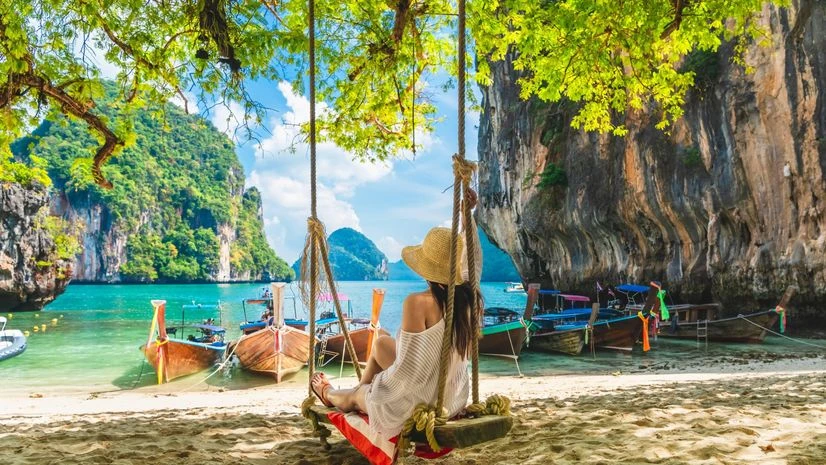To bolster the arrival of long-haul and high-spending tourists, Thai Prime Minister Srettha Thavisin advocated the adoption of a Schengen-style visa scheme. He is in talks with Cambodia, Laos, Malaysia, Myanmar, and Vietnam about this initiative, according to a report by Bloomberg.
What is a Schengen visa?
A 'Schengen' visa enables travellers to move freely among countries such as Austria, Portugal, Germany, Italy, Switzerland, and Greece without the need to apply for multiple visas annually. It serves as a gateway to the Schengen Area, consisting of European countries that have abolished passport and other types of border controls at their mutual borders.
Thailand's single-visa plan for Southeast Asia
Srettha Thavisin's proposal has been met with enthusiasm from most regional leaders. By simplifying travel processes, Thailand seeks to augment its tourism revenue, providing a much-needed buffer against economic challenges such as diminishing exports and a faltering manufacturing sector. The six countries witnessed around 70 million tourists last year, with Thailand and Malaysia contributing the lion's share, generating about $48 billion in tourism revenue. The tourism industry has served the country well, accounting for about 20% of total jobs and making up about 12% of the nation’s $500 billion economy. Barring the pandemic years, tourism has flourished and provided a cushion against a slump in manufacturing and exports, the traditional bulwarks of the economy.
Impact on Indian travellers
More From This Section
Thailand's ambitious push for a joint-visa programme is expected to have minimal impact on Indian travellers, given the privileges of visa exemptions, visa-on-arrival, and e-visa options already available to them in these nations.
Thailand's visa-exemption for Indians
In November 2023, Thailand waived visa requirements for Indian travellers. This exemption, in effect from November 10, 2023, to May 10, 2024, allows Indians to visit Thailand for up to 30 days without a visa. According to the Tourism Authority of Thailand, the visa exemption has resulted in an increase in daily Indian arrivals from 4,000 to 5,500 people.
Laos tourist visa rules for Indians
Indians do not need to apply for a Laos visa in advance. They can get a visa upon arrival in Laos provided they have valid travel documents. The Laos visa on arrival is issued for 30 days. All visitors must hold a passport that is valid for at least six months from the time of entry into Laos.
Maldives tourist visa rules for Indians
The Maldives continues to attract Indian tourists with its visa-on-arrival policy. The island nation is known for its beaches and luxurious overwater villas.
Myanmar tourist visa rules for Indians
Myanmar has streamlined the entry process for Indian nationals by offering an e-visa option. Applicants can secure their visa online and have it stamped upon arrival. This e-visa allows for a 28-day stay in Myanmar, with the approval letter remaining valid for 90 days from issuance.
Vietnam tourist visa rules for Indians
Vietnam also offers an e-visa facility. The process requires a passport valid for six months beyond the intended arrival date. Vietnam's tourist visa, which can be obtained online, is valid for 15 to 30 days and can be extended for an additional month.
Cambodia tourist visa rules for Indians
For Indian travellers heading to Cambodia for tourism, applying for an e-visa is necessary. This electronic visa simplifies the process, making Cambodia another accessible destination for Indians looking to explore Southeast Asia.
Could a common visa make Southeast Asia a more attractive destination?
The tourism sector has welcomed the idea, with Marisa Sukosol Nunbhakdi, a former president of the Thai Hotels Association, telling Bloomberg “A common visa could entice long-haul travellers to make an easier decision.” She said the visa validity will need to be extended to 90 days from the usual 30-day period to make it attractive.
How Thailand is luring tourists
Srettha's government is aiming for 80 million tourists by 2027, and has already taken steps to simplify entry for visitors from China, India, Taiwan, and Kazakhstan, alongside exploring options for casino tourism and event-based attractions.

)
